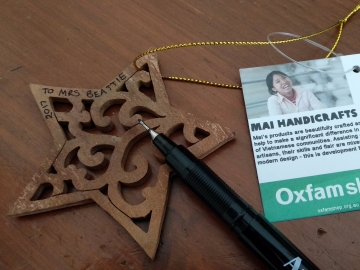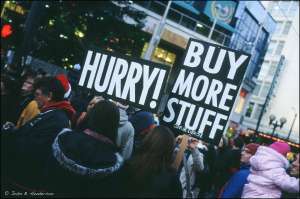
We all have teachers in our lives whom have fundamentally changed our lives, or our children’s lives, for the better. We often feel a debt of gratitude for teachers. In the case of early childhood teachers we may also feel a sense of guilt too – as these people who play such an influential role in our children’s lives are paid so poorly and we want to show them how much we really value and appreciate them. The reality is though that most teachers have 20-30 kids in each of their classes and that there is only so many ‘World’s Best Teacher Mugs’ or other trinkets that teachers can accommodate.
End of year gifts for teachers are another social norm that need to be challenged but not necessarily abandoned. Taking the time to acknowledge our teachers is important both for us so we can express our gratitude, and for teachers to know the impact that they have made. But the ways in which we often do this needs to change. Just taking the time to express what a teacher has done for us, or for our children, is a wonderful gift. A simple card, or letter, expressing these sentiments to a teacher is wonderful gesture.
This year we wanted to acknowledge the teachers in our lives in a more sustainable way. The kids were still keen to give something and our two little ones are not yet old enough to write a special personalised note or card (though could have made an artwork). So fi we were going to give a gift we established some rules. Nothing plastic, and something that when it did end up being thrown out would biodegrade. Something that allowed for a little personal touch and ideally something that allowed us to contribute back to others in our gift buying. The idea we settled on was some small cinnamon wood Christmas tree decorations from Oxfam. Because they are wood we can easily write a personalised message on each decoration for the teacher.
Result – a small, personalised gift which conveys a lovely message and can hopefully be happily accommodated into our teachers lives (and gives a lovely smell to boot!) rather than being destined to landfill. But importantly, whenever it does end its useful life it will biodegrade. Another more sustainable gift idea we liked (but lack the time for this year!) is making cookies or something we’ve done previously – stained glass window biscuits (which could also be used as tree decorations!)
What ideas do you have to make acknowledging our teachers more sustainable?

